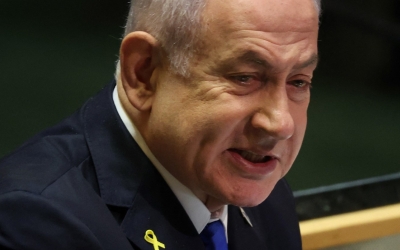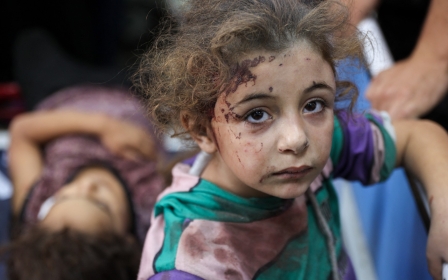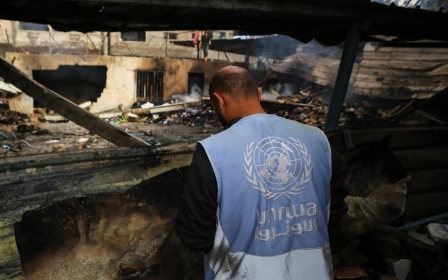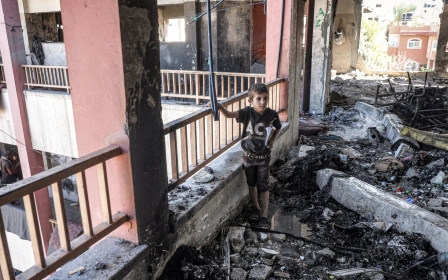Unrwa is a constant reminder of Israel's crimes. That's why they want it gone
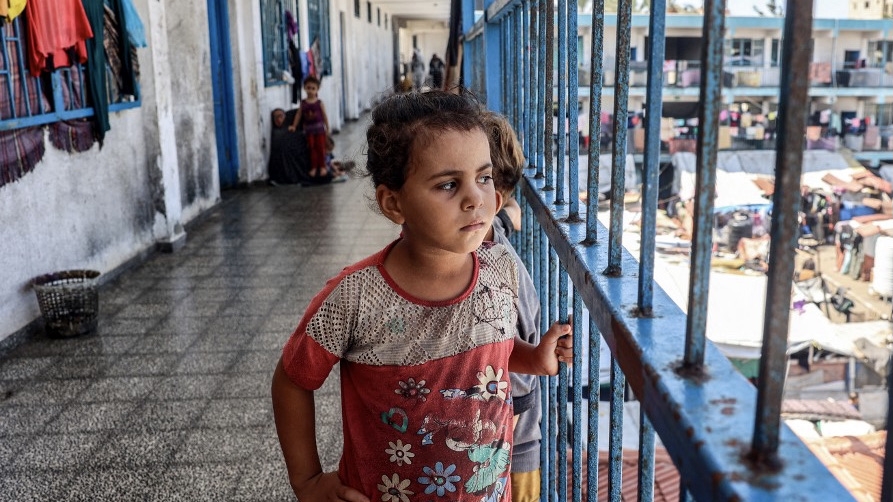
Israel recently announced a ban on the United Nations Relief and Works Agency for Palestine Refugees (Unrwa), the agency responsible for supporting Palestinian refugees.
For Palestinians, especially those in Gaza, this decision is heartbreaking and marks a significant shift in their suffering.
Israel's claim that Unrwa has links to terrorism stems from allegations that nine employees might have participated in the 7 October attack. Unrwa’s commissioner-general, Philippe Lazzarini, responded that if evidence of employee involvement was "authenticated and corroborated", their contracts would be terminated - demonstrating the agency’s strict neutrality. Yet, this was evidently not sufficient for Israel. Why?
Unrwa has always been a threat to Israel. But is this because Unrwa has anything to do with violent action or even Palestinian resistance? Not at all.
I grew up attending Unrwa schools. I have been taught, mentored and educated by Unrwa teachers - wonderful, dedicated, highly educated people. I was given many Unrwa services as a Palestinian refugee born in Gaza. Unrwa provided all of my vaccinations. All of the healthcare I received before leaving Gaza was through Unrwa.
New MEE newsletter: Jerusalem Dispatch
Sign up to get the latest insights and analysis on Israel-Palestine, alongside Turkey Unpacked and other MEE newsletters
I would not say that Unrwa made my life perfect or made me overcome Gaza's struggles, but Unrwa did contribute to my having a better life. If Unrwa had not been there, my life would have been way worse.
Silencing critical voices
I never fully liked Unrwa, though. And here's why.
Unrwa was founded in 1949, the year after the Nakba, the Palestinian catastrophe and the first genocide. It was in 1948 that Palestine was stolen from its people and presented to the world as Israel, with up to 750,000 Palestinians expelled from their land, causing a refugee disaster. Something was needed to silence all of those critical voices, including Palestinians, and Unrwa was the solution.
Follow Middle East Eye's live coverage for all the latest on the Israel-Palestine war
It was like: "We steal the land and give the survivors of the genocide some services to help them forget and live off that for a while. That way, we are equal."
Since there are many Palestinian refugees in Lebanon, Syria, Jordan, the West Bank and Gaza, if Unrwa supports them, these countries and territories will stop complaining, and we could all live in peace, with minimal, if any, guilt.
Unrwa became a reminder of our reality, refugees kicked out of our homeland, fully dependent on aid
It worked. Palestinians for years depended on Unrwa; some Palestinians even loved Unrwa, as if it was their home.
The majority, though, did not forget the original home, the land, and the lives we had before the Israeli theft of our land.
On the contrary, Unrwa became a reminder of our reality, refugees kicked out of our homeland, fully dependent on aid.
The United Nations defines refugees as people forced to flee due to persecution or life-threatening situations, a category that fits Palestinians. Yet, Palestinians have been excluded from the protection of the UN High Commissioner for Refugees (UNHCR) due to an arrangement that Palestinians have a specific international agency that covers them, ie Unrwa.
According to the Kaldor Centre for International Refugee Law, Palestinian refugees fall under Unrwa’s jurisdiction, not the UNHCR’s. Banning Unrwa would imply that Palestinians are not refugees at all. So, if not refugees, who are we? What label defines our suffering and fight for liberation?
Strategy of dehumanisation
Unrwa’s presence reminds the world of Israeli occupation, the 1948 genocide and other historical atrocities against the Palestinians - an uncomfortable reality for Israel. To remove this reminder, Israel is using the same strategy of dehumanisation that justifies violence against Palestinian civilians.
This is part of a larger move to erase the identity and history of Palestinian refugees. Banning an agency that contributes to documenting their crimes is to be totally expected.
Amid the ongoing genocide, Gaza’s dependence on Unrwa for survival has only deepened. When I lived in Gaza, Unrwa was a lifeline for essential aid, even though the support has been reduced to the minimum due to Israel's war. Banning Unrwa now, after tens of thousands of Palestinians have died and countless homes have been destroyed, threatens to worsen Gaza’s dire situation.
Hassan el-Tayyab, writing for the Hill, emphasised that Unrwa was the “backbone” of aid operations in Gaza, crucial to ensuring that millions received needed support. Blocking US funding for this work would exacerbate the humanitarian disaster.
The absence of Unrwa would devastate Palestinians on every front. Without the agency’s healthcare, education, food aid and employment opportunities, Gaza and Palestinian refugee communities in host countries would face worsening poverty, hunger and health crises.
This would destabilise host countries’ economies and burden already fragile communities.
Politically, it would undermine Palestinian refugee status and weaken advocacy for their rights, including the right of return, while diminishing international awareness of the ongoing displacement.
Psychologically, Unrwa’s loss would erode a key part of Palestinian identity, heightening trauma and leaving Palestinians feeling even more abandoned. In short, Unrwa’s absence risks not only intensifying immediate suffering but also erasing decades of Palestinian resilience, survival and identity.
As a Palestinian, I feel that the world has failed us. Humanity, international law and rights only seem to serve powerful states and are wielded for political gain.
Palestinians are denied even basic rights. The power dynamics between Israel and Palestinians reveal a harsh truth: a militarised group, supported by powerful states, can deny our right to exist and our right to have rights.
Hope is all we have left.
The views expressed in this article belong to the author and do not necessarily reflect the editorial policy of Middle East Eye.
Middle East Eye delivers independent and unrivalled coverage and analysis of the Middle East, North Africa and beyond. To learn more about republishing this content and the associated fees, please fill out this form. More about MEE can be found here.



